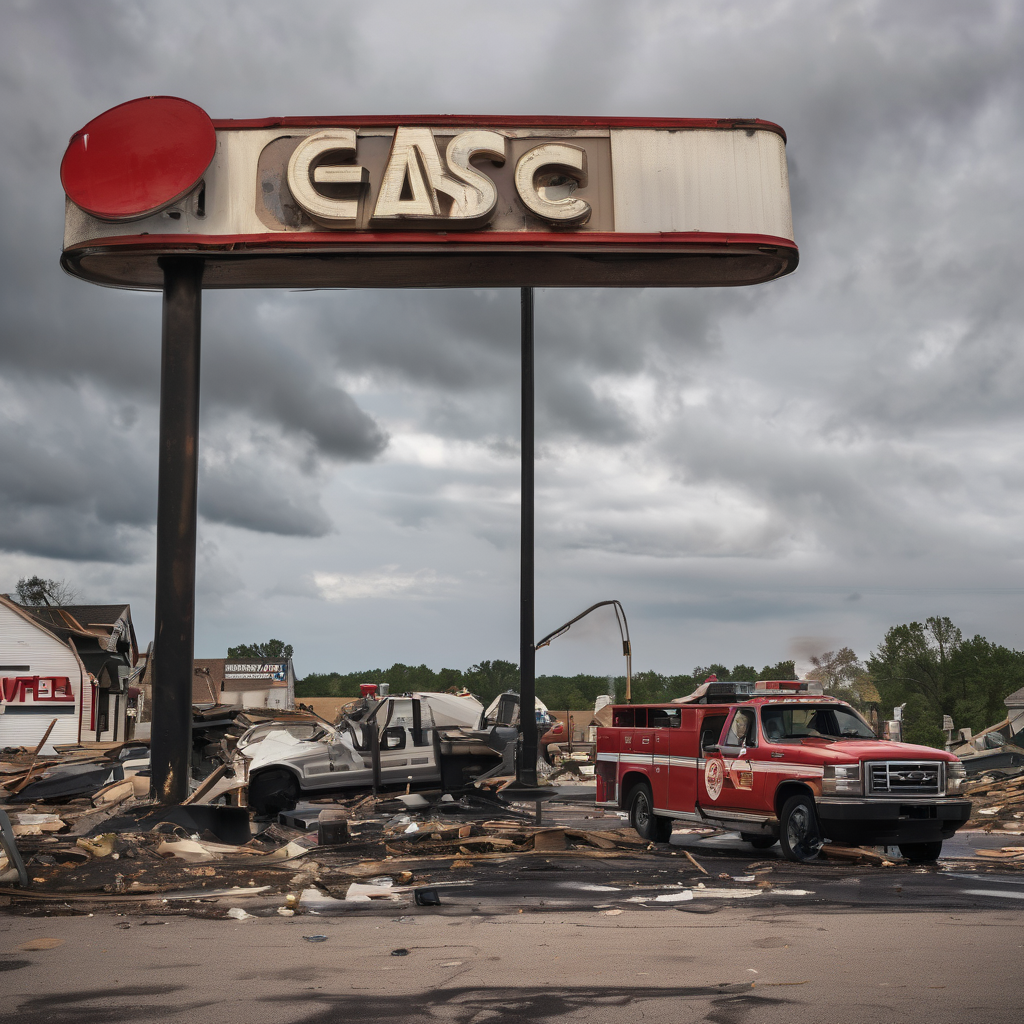A gas station owner in Nashville has filed a federal lawsuit against Erie Insurance, alleging that the insurer shortchanged the company on its tornado damage payout following an EF2 tornado that struck the area in December 2023. The case, which focuses on defining storm damage and the handling of evidence by the insurer, reveals the often-complex interactions between businesses and insurance providers in the wake of natural disasters.
Yellowbird Oil & Gas, which operates the gas station and convenience store at 3740 Dickerson Pike, claims the tornado’s winds, reaching up to 80 miles per hour, caused significant damage by sending debris that punctured the EPDM rubber roof of their property. The resultant water leak damaged equipment inside the building, raising concerns about safety and functionality.
The company held a commercial property insurance policy with Erie that covered two buildings, including the gas station and its canopy, explicitly protecting against direct physical loss unless otherwise stated. Windstorm and hail were included in the list of covered risks, albeit with a separate deductible.
Following the tornado, Yellowbird hired Premier Claims to assess the damage, arriving at a staggering estimate of $141,095.86. This figure was based on extensive damage to the roof and significant water intrusion that affected multiple layers beneath the surface. In contrast, Erie Insurance conducted its own investigation, employing an engineer who acknowledged the tornado’s impact on the roof; however, this expert concluded that much of the water damage stemmed from sources unrelated to the storm.
In light of this assessment, Erie offered a much lower payout for repairs, amounting to only $3,204.77 after applying a $2,500 deductible, which Yellowbird finds unacceptable. The two parties are at odds over critical evidence, as Yellowbird contends that Erie disregarded infrared imaging and moisture documentation that would have illustrated more extensive saturation and damage within the roof structure. The company argues that simply patching the roof without full repairs violates both state and federal building codes, suggesting negligence in Erie’s claim handling.
The lawsuit accuses Erie Insurance of breaching their contractual obligations and acting unreasonably under Tennessee law. Yellowbird seeks damages up to the policy limits, a statutory 25% penalty, as well as attorney fees, and punitive damages, citing what they describe as intentional and reckless behavior in managing the claim.
As the case progresses, it highlights the contentious nature of insurance claims following severe weather incidents, where differing interpretations of damage and policy obligations can lead to substantial disputes. This situation underlines the importance of thorough evaluations and transparency in the claims process, especially for businesses heavily impacted by natural disasters.
